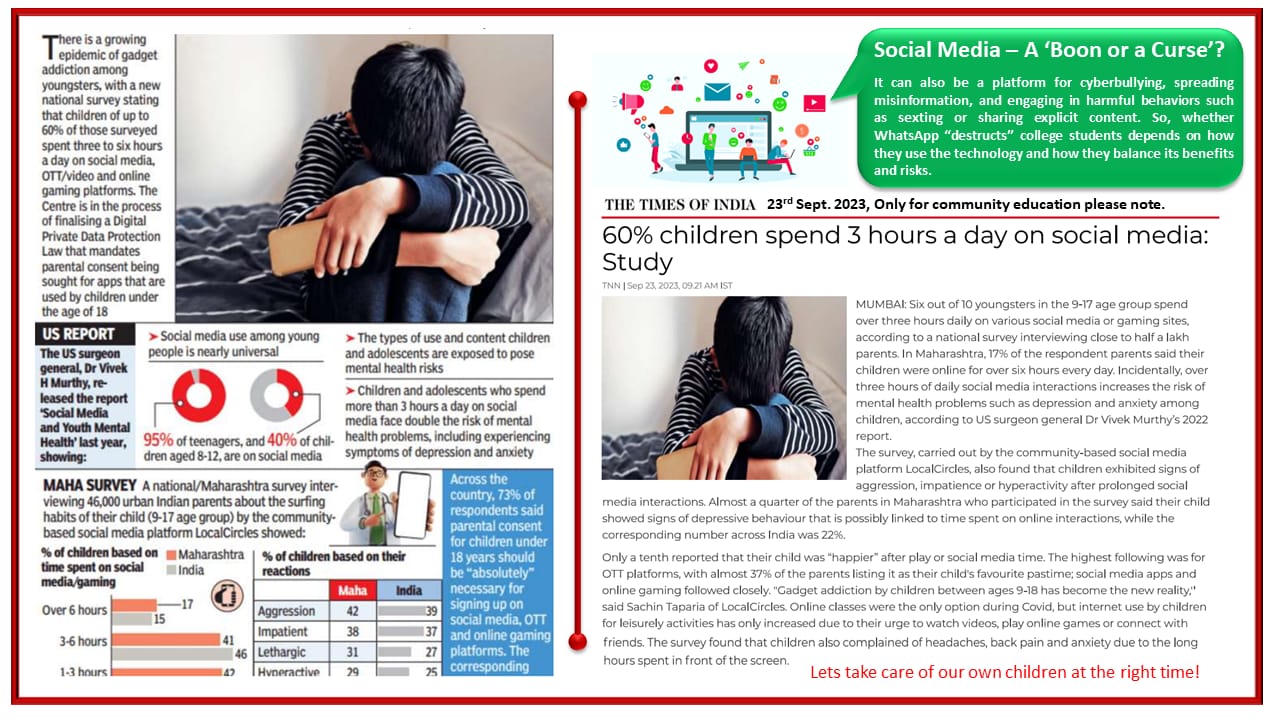Introduction:
Dear Readers,
In the age of technology, where social media has become an integral part of daily life, the impact on the mental health of our youth cannot be overlooked. This blog post is a response to the insightful information shared about the profound influence of social media on the well-being of young individuals. The data presented, including insights from the US surgeon general’s report and the Maharashtra survey, sheds light on the pervasive challenges that require collective attention.
Understanding the Scope:
The statistics on gadget addiction and the significant amount of time spent on social media platforms by youngsters underscore the pressing need for a balanced approach to technology use. This blog aims to explore the potential risks associated with excessive digital engagement and emphasizes the importance of fostering a healthier relationship with the digital world.
Parental Consent and Responsible Use:
One commendable step in the right direction is the emphasis on parental consent for children under the age of 18 when signing up on social media, OTT platforms, and engaging in online gaming. Establishing age-appropriate boundaries and encouraging responsible digital behavior from an early age can significantly contribute to the mental well-being of the younger generation.
Empowering Parents and Educators:
As we navigate through the digital age, it becomes imperative for parents to actively monitor and guide their children’s online activities. This blog advocates for the role of education and awareness programs in empowering parents and educators to navigate the challenges posed by the digital landscape effectively. By staying informed and engaged, caregivers can create a supportive environment that fosters healthy online habits.
The Role of EDUFORCE:
The initiative taken by EDUFORCE in providing First Aid, Work At Height, Industrial Safety, and Consultancy Services aligns well with the holistic approach needed to address the challenges posed by the digital landscape. Education is a powerful tool, and programs like these can equip parents and educators with the knowledge and skills to guide young minds effectively.
Conclusion:
This blog is a call to action, urging society at large to recognize and address the impact of social media on youth mental health. By fostering a balanced approach, promoting responsible use, and embracing educational initiatives, we can collectively create a safer and more supportive digital environment for the younger generation.

